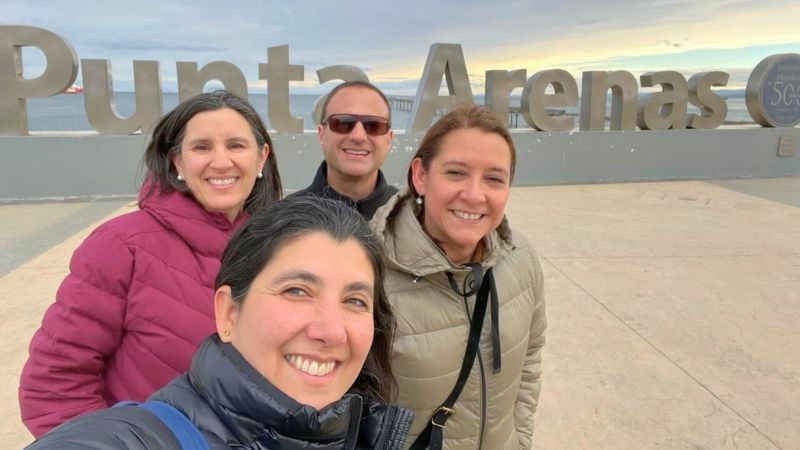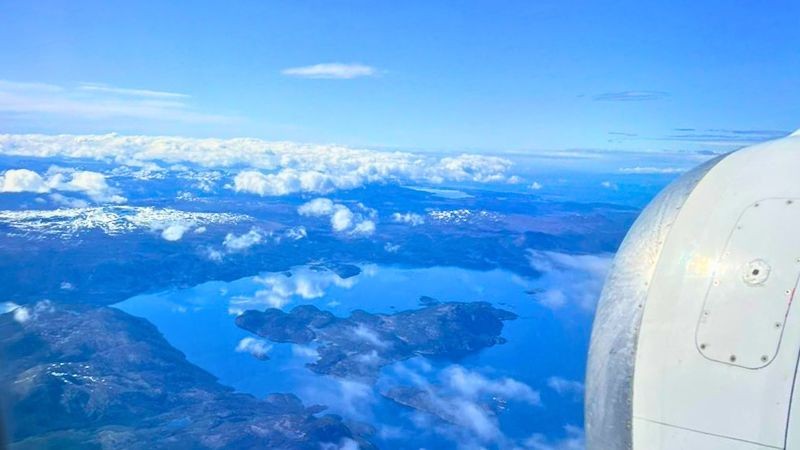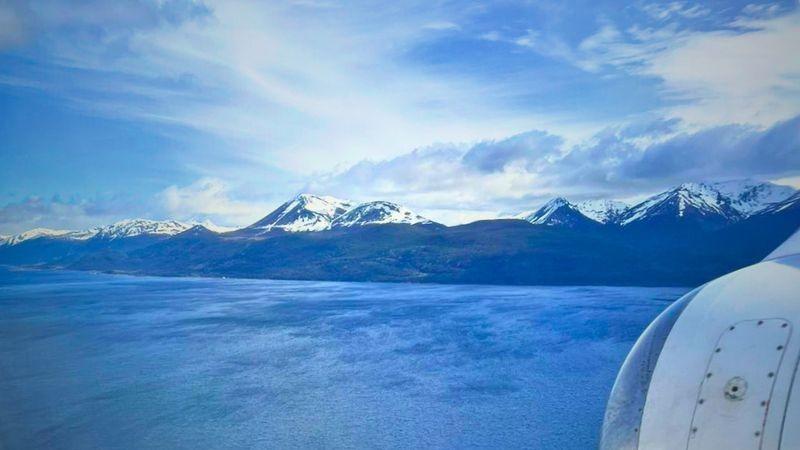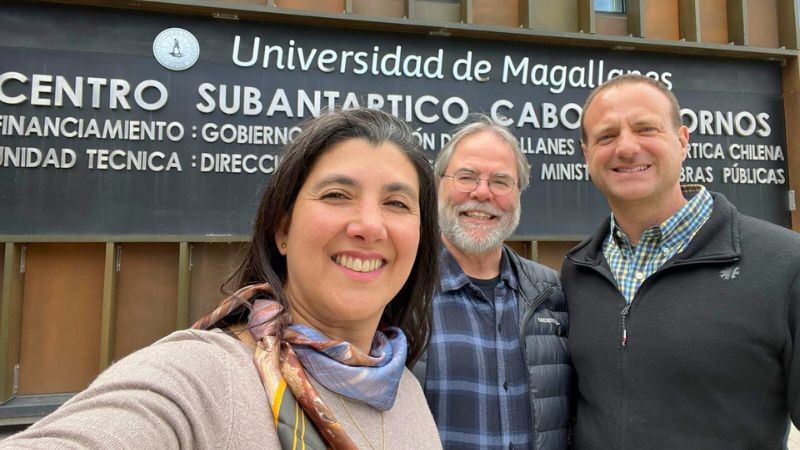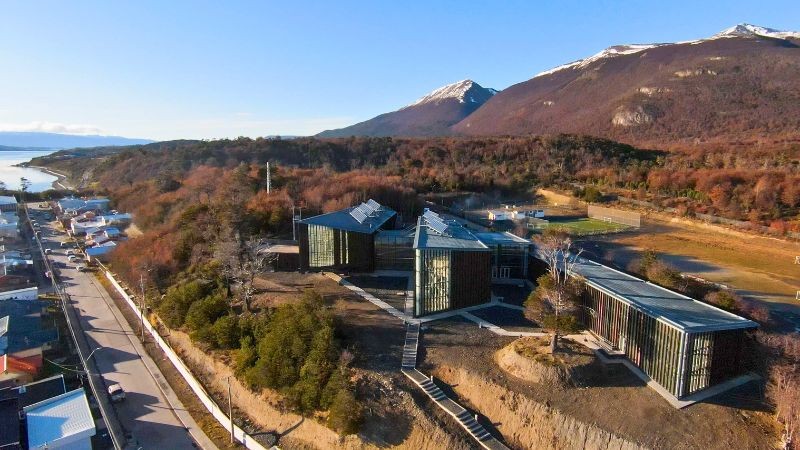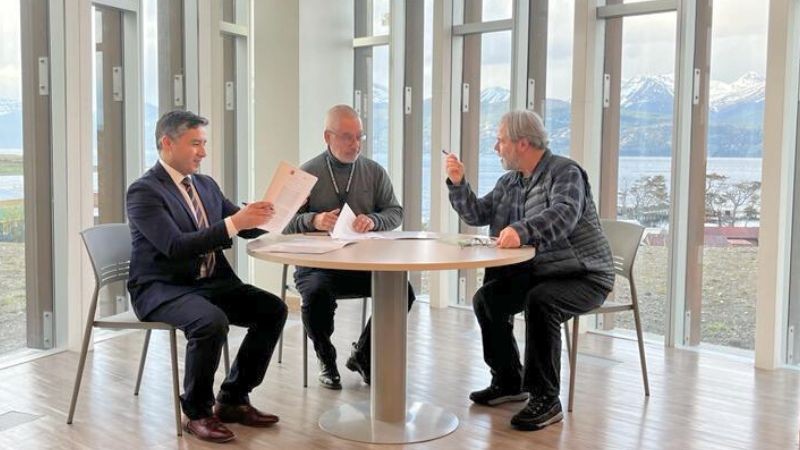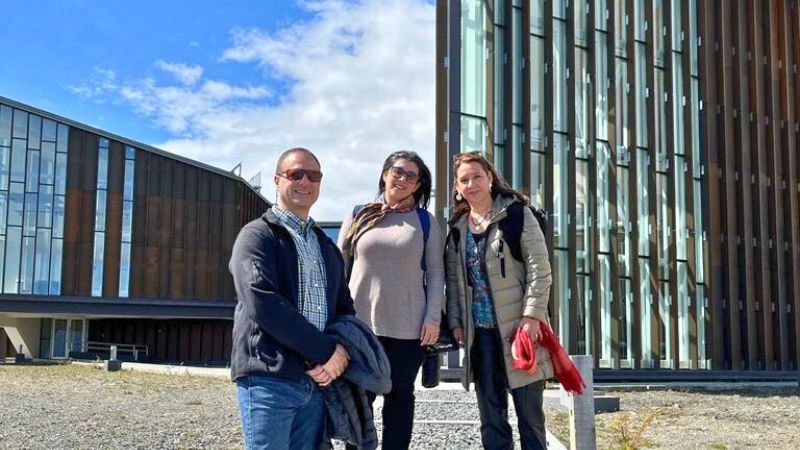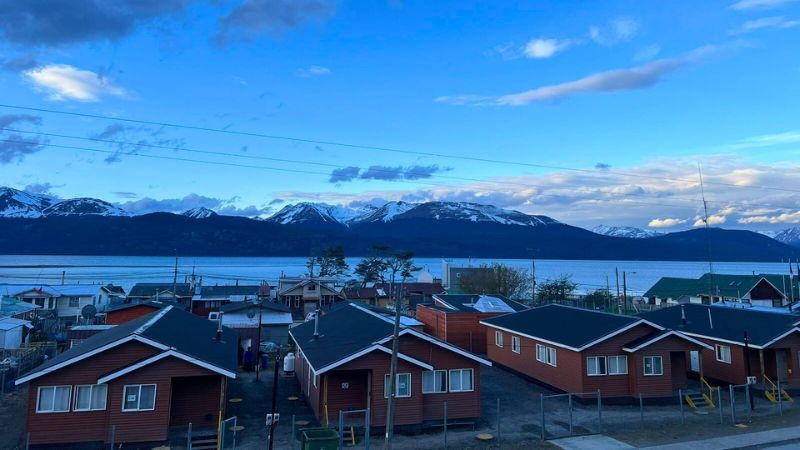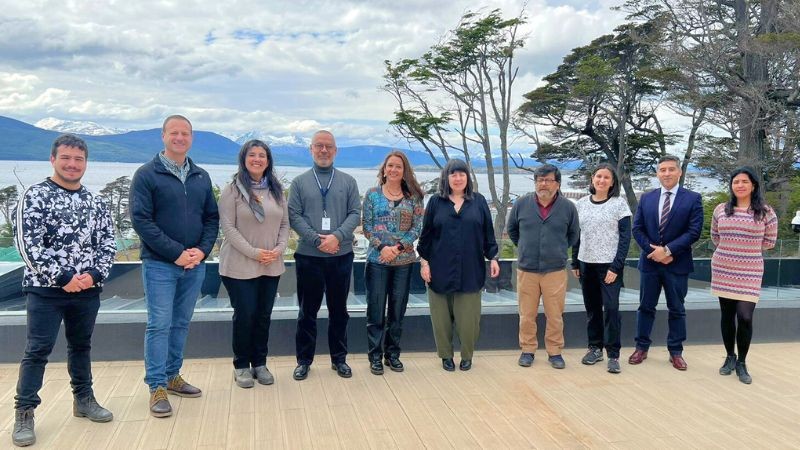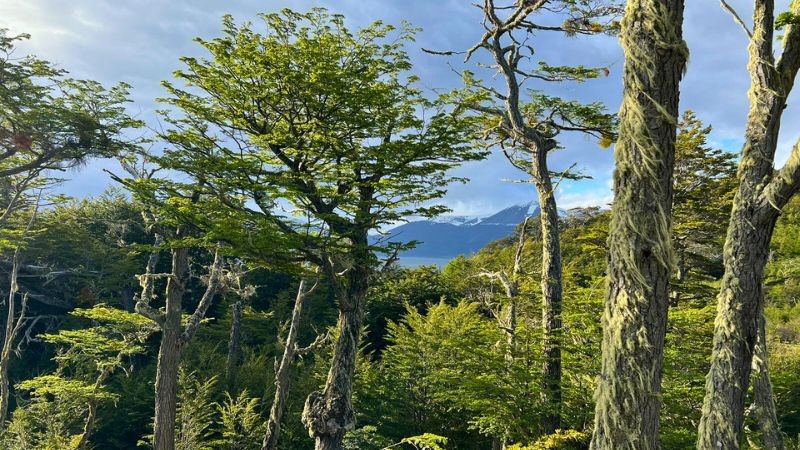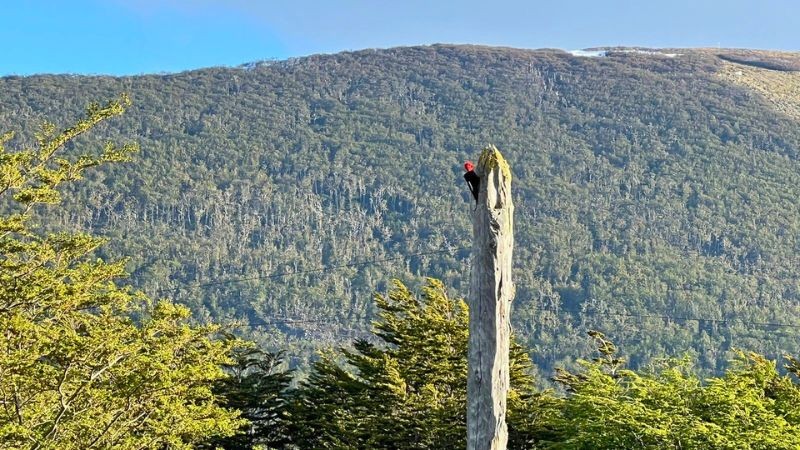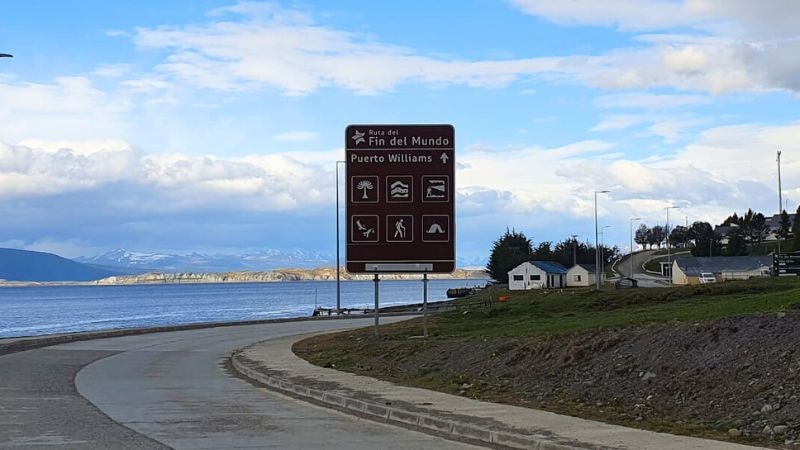Santiago Center explores synergies in visit to subantarctic research center
Programming Officer Chris Molinari visited the CHIC center located in the Cape Horn Biosphere Reserve.
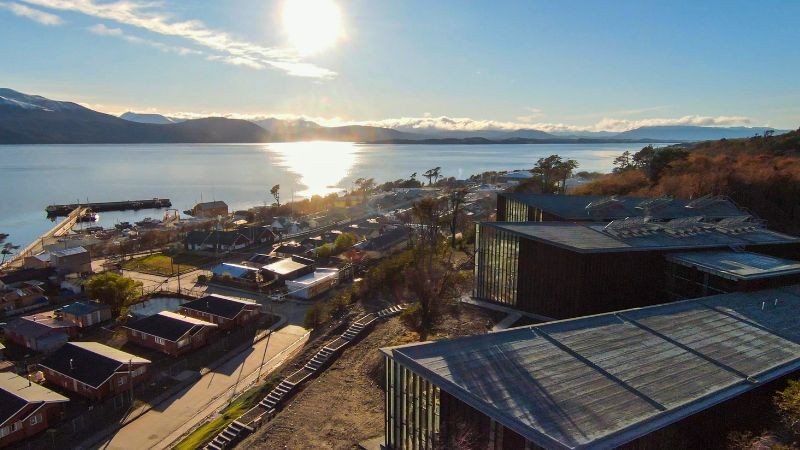
At the beginning of November, the Santiago Center’s programming officer Chris Molinari joined officials from Universidad Católica (UC) in an exploratory visit to the Cape Horn International Center (CHIC), which seeks to study and monitor how subantarctic ecosystems respond to climate change, through a novel biocultural approach that integrates science, education, anthropology and environmental ethics.
CHIC - comprised of a consortium of seven universities and led by Universidad de Magallanes (UMAG) and co-led by UC – is located in the town of Puerto Williams, on the Beagle Channel and in the Cape Horn Biosphere Reserve, in Chile’s southernmost region of Magallanes. This pristine “natural laboratory” serves for the study of climate change and various biocultural phenomena.
The main purpose of the Santiago Center’s visit was to evaluate possible synergies between Columbia University, UC, and CHIC. This stems from a newly signed Memorandum of Understanding (MOU) between Columbia and UC to advance research and scholarly collaboration in a wide range of disciplines, including climate change, global health, engineering, and peace studies.
CHIC’s objective is to design and evaluate socio-environmental policies, sustainable economic activities, educational methodologies linked to conservation, biocultural heritage, and management plans for the southernmost marine and terrestrial protected areas of the continent.
It has three lines of research:
- “Sentinels of climate change,” which addresses terrestrial, freshwater and marine ecosystems.
- “Sentinels of biocultural homogenization,” which reviews the homogenization of biotas: plants, animals and other living organisms (i.e., a native forest is replaced by a monoculture of eucalyptus). This also encompasses evaluating diversity and examining opportunities to reverse the situation, including the study of birds and the introduction of exotic or invasive species, as well as cultural anthropology, philosophy, and biocultural ethics.
- Environmental, economic and social sustainability, through research, design of materials and concrete proposals in education, gastronomy, and sustainable tourism and protected areas.
During the site visit, guests also participated in the signing ceremony between the National Director of Public Education, Jaime Veas, authorities of the Local Public Education Service of Magallanes, and CHIC director Ricardo Rozzi, to strengthen Puerto Williams’ education with a territorial approach that emphasizes the conservation of the surrounding area’s biodiversity and culture. The ceremony took place within the context of the ongoing implementation of Chile’s new public education system which will transfer the administration of public education from municipalities to a decentralized educational system.
Founded in 1953, Puerto Williams is a small city and naval base located in the northern area of Navarino Island, facing the Beagle Channel and Tierra del Fuego Island. With a population of around 3,000, it holds the distinction of being the southernmost city and people settlement in the world, and serves as the capital of Chile’s Antarctic Province. The city is a major hub for scientific activities, and the primary port of entry for researchers heading to Antarctica.
Image Carousel with 12 slides
A carousel is a rotating set of images. Use the previous and next buttons to change the displayed slide
-
Slide 1: In Punta Arenas
-
Slide 2: Aerial view
-
Slide 3: Aerial view
-
Slide 4: Lilian Ferrer, Ricardo Rozzi, Chris Molinari
-
Slide 5: Centro CHIC
-
Slide 6: Centro CHIC
-
Slide 7: Centro CHIC
-
Slide 8: Puerto Williams
-
Slide 9: Group
-
Slide 10: Isla Navarino
-
Slide 11: Isla Navarino
-
Slide 12: Isla Navarino
